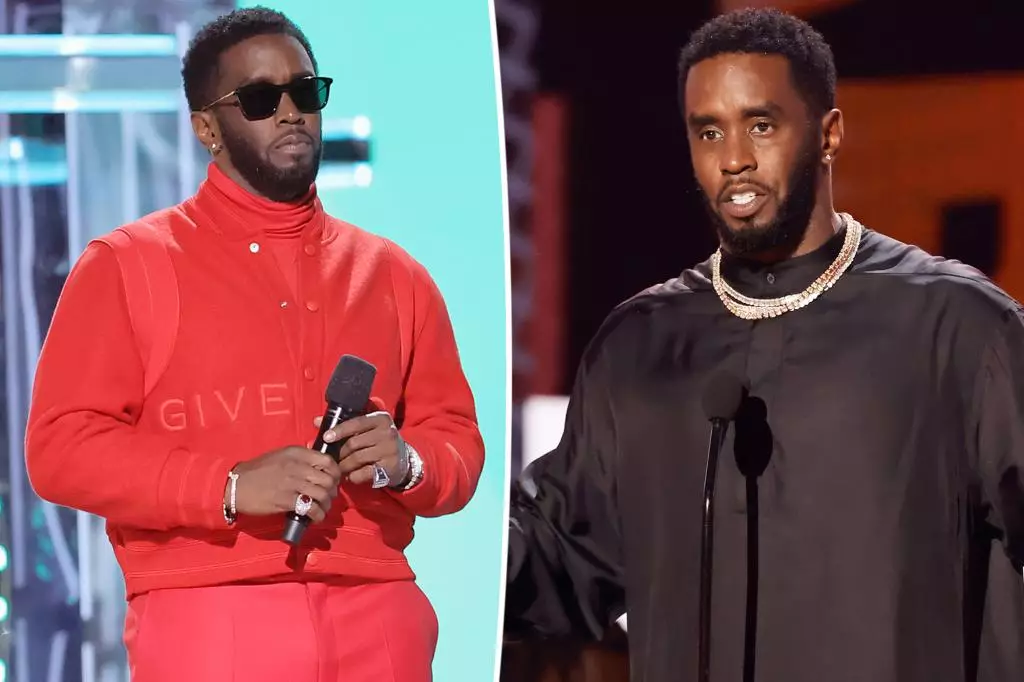In the realm of legal proceedings, particularly in high-profile cases involving public figures, the decision to testify can significantly impact the outcome of the trial. Sean “Diddy” Combs, facing serious allegations including sex trafficking and racketeering, is reportedly considering taking the stand in his defense. However, legal experts, such as Meesha Moulton of Meesha Moulton Law, raise important concerns regarding this choice, emphasizing the potential risks inherent in testifying.
One of the most critical aspects of a trial where the defendant chooses to testify is the cross-examination by the prosecution. According to attorney Moulton, testifying exposes the individual to a relentless barrage of questions designed to uncover inconsistencies in their narrative. The prosecution’s goal is clear: to capitalize on any misstep or deviation from Diddy’s story. Such a process, described by Moulton as “mentally grueling,” creates a vulnerabilities that could ultimately work against the defendant’s interests.
The emotional strain of cross-examination can be profound. If Diddy were to become flustered or show signs of frustration while under scrutiny, it could lead to a perception among jurors that he is not credible. This highlights a key issue in the law: the juror’s perception can be as crucial as the evidence presented. Diddy’s emotional composure will be of utmost importance, and any sign of weakness could adversely affect the jury’s view of him.
Moulton’s advice reflects a broader principle in legal strategy: prioritizing a tactical defense over the personal urge to express oneself. While there may be a compelling narrative that Diddy wishes to share—one of love, heartbreak, and personal experiences—this may not align with the best interests of his case. The emotional depth of his story could be overshadowed by the urgency to address damaging allegations.
As Diddy’s attorney, Marc Agnifilo, conveys enthusiasm about bringing his client’s story to light, Moulton cautions against this desire overshadowing the strategic element of defense. It is essential for Diddy to remain focused on the legal chess game at hand, rather than veering into personal narratives that could distract from the defense’s primary goals.
On the other hand, there is merit in Moulton’s observation that Diddy’s testimony could shift the narrative dynamics in the courtroom. By presenting his side of the story, he could indeed challenge the prosecution’s claims and humanize himself in front of jurors. Emphasizing his contributions to society, philanthropy, and personal growth could foster a sense of complexity that may lead jurors to pause before arriving at a verdict.
For Diddy, testifying could be an opportunity not only to dispute allegations but also to construct a layered identity that counters the prosecution’s portrayal. The challenge lies in his ability to effectively communicate this multifaceted persona without falling into emotional traps set by cross-examination.
An additional layer of complexity in Diddy’s potential testimony relates to the unpredictable nature of courtroom proceedings. Moulton stresses the importance of being prepared for unexpected developments that could arise during the trial. New evidence or surprise witness testimonies could shake Diddy’s narrative, making it imperative for him to remain composed under pressure.
The gravity of the charges against Diddy is substantial; should he be convicted, he faces a minimum of 15 years in prison. This underlines the importance of a strategic approach to the trial—one that takes into consideration not only the emotional appeal but also the pragmatic realities of courtroom dynamics.
Diddy’s case serves as a cautionary tale for other public figures entangled in legal controversies. The scrutiny that comes with being in the public eye can amplifies the stakes, making the decisions during a trial all the more consequential. Whether to testify becomes not just a legal decision but also a deeply personal one, filled with potential ramifications that extend beyond the courtroom.
The decision for Sean “Diddy” Combs to testify in his own defense entails weighing the risks of cross-examination against the potential benefits of reframing the narrative. As legal experts highlight, maintaining emotional composure and prioritizing strategic defense are paramount. Ultimately, Diddy stands at a crossroads, where the choices he makes now could dramatically influence the trajectory of his legal battle and his future.
